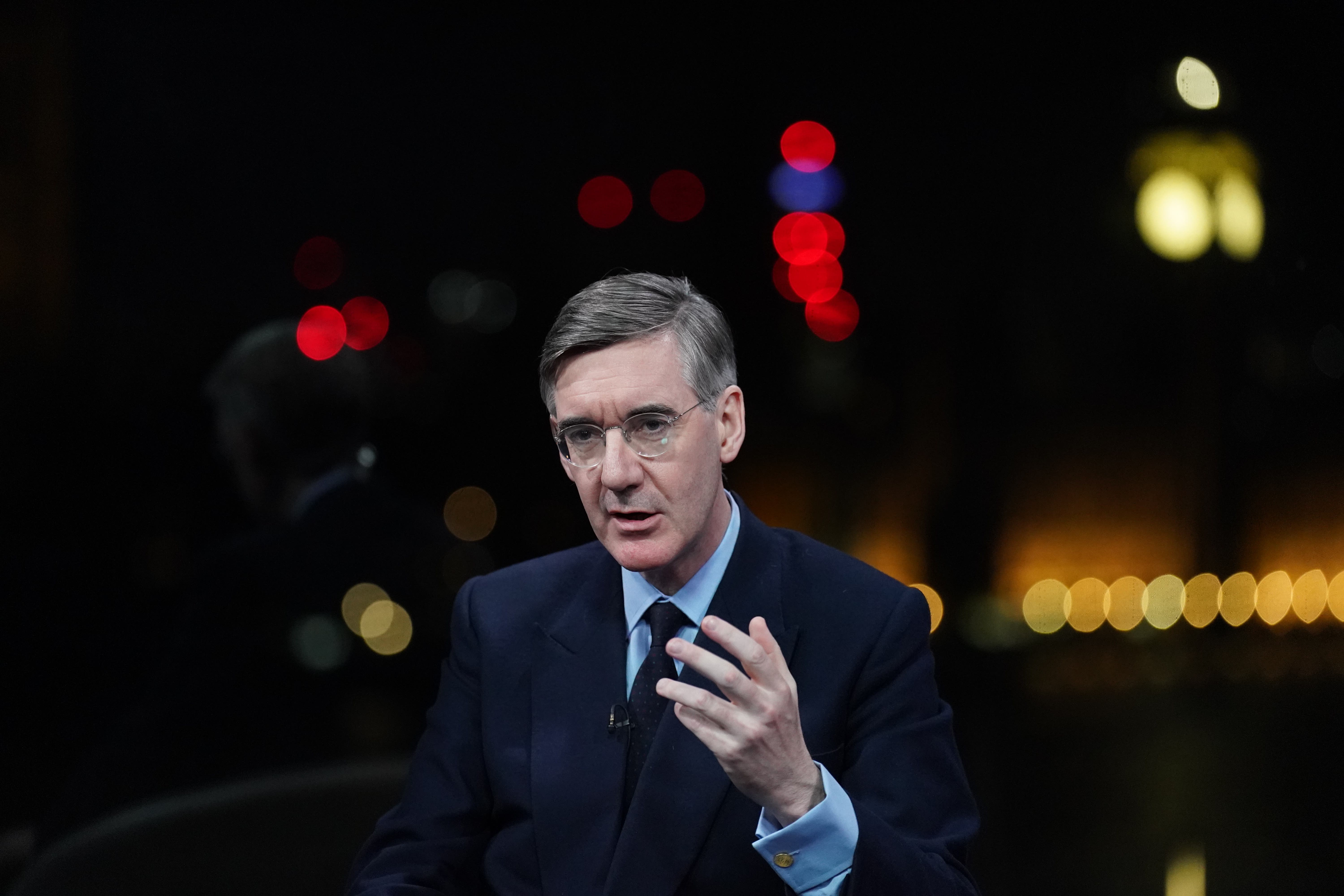Jacob Rees-Mogg to respond in free speech debate at Conservative conference
Members will get the opportunity to take part in the four debates, which will all take place on the conference’s main stage on Monday.

Your support helps us to tell the story
From reproductive rights to climate change to Big Tech, The Independent is on the ground when the story is developing. Whether it's investigating the financials of Elon Musk's pro-Trump PAC or producing our latest documentary, 'The A Word', which shines a light on the American women fighting for reproductive rights, we know how important it is to parse out the facts from the messaging.
At such a critical moment in US history, we need reporters on the ground. Your donation allows us to keep sending journalists to speak to both sides of the story.
The Independent is trusted by Americans across the entire political spectrum. And unlike many other quality news outlets, we choose not to lock Americans out of our reporting and analysis with paywalls. We believe quality journalism should be available to everyone, paid for by those who can afford it.
Your support makes all the difference.Ex-Conservative MP Sir Jacob Rees-Mogg has been handpicked by the chair of the party to respond to a debate on free speech at its conference next week.
The Conservative Party conference, which starts in Birmingham on Sunday, is bringing back member debates for the first time in two decades, being trialled out by interim party chair Richard Fuller.
Sir Jacob, who lost the election for the newly created seat of North East Somerset and Hanham in July, said he was “delighted” Mr Fuller was bringing the debates back, and they are about members “taking back control” of the conference.
Members will get the opportunity to take part in the four debates, which will all take place on the conference’s main stage on Monday.
As well as the one on free speech, being responded to by Sir Jacob, there will be a debate on immigration and border control, responded to by shadow foreign minister Paul Holmes; one on building homes and protecting green spaces, which will be responded to by David Simmonds – the shadow minister for housing; and another on growing the economy, which will be responded to by Laura Trott – the shadow chief secretary to the Treasury.
Asked how the respondents had been selected, Mr Fuller told the PA news agency: “These are people that I have chosen.”
“I think these are the right people to respond to members on this debate,” he added.
While he said that in the past people who responded to member debates were usually ministers or shadow ministers, Mr Fuller asked “why should it always be ministers and shadow ministers who respond to a debate?
“Maybe the person responding should be someone who is an expert in a field from outside Parliament? Maybe it should be a young person who responds to a debate about the future for young people.”
Mr Fuller, who has been the MP for North Bedfordshire since 2019 and was the MP for Bedford between 2010 and 2017, said that the party “ought to be listening to our own members”.
He added: “I think political parties can be a bit stage-managed, that’s not what the public want. People now are saying their opinions on Twitter and putting things on Facebook saying what they like.
“This is the world we live in, and to suppress it artificially and not listen to your members I think is just not meeting with the times, let people say what they feel we should do.”
This is the first conference following the party’s election defeat, and “probably the one where people are going to be at their rawest”, Mr Fuller said.
Sir Jacob told PA that he is “absolutely delighted Richard Fuller has done this I think it’s really important that the conferences go back to being about members”.
The MP for North East Somerset between 2010 and 2024, Sir Jacob served as a minister in Boris Johnson’s and Liz Truss’ governments.
He added: “The debate really isn’t about my response, it’s about the members taking back control – to coin a phrase – of the party conference. It should be about them, about their concerns about their issues rather than just an opportunity to clap ministers.”
The debates will give members the opportunity to speak on the selected topics for a maximum of three minutes each. Whoever is responding to the debate will give introductory marks and also wrap up the session.
The debates are returning at the first conference after the party’s election defeat in July, a conference where Mr Fuller has said that “recognising the defeat, recognising what the message was from voters” is an “important” thing to do.
The Conservative leadership contest will feature prominently at the conference, with the four candidates – James Cleverly, Kemi Badenoch, Tom Tugendhat and Robert Jenrick – getting multiple opportunities to speak on the main stage.
In interviews with SpectatorTV released on Thursday, the candidates were asked why they thought their party lost the election.
Mr Cleverly said he thought the public “stopped listening to us” and the party was met “with real cynicism” from voters. “People had literally closed their ears, their minds to our arguments,” he said.
Mr Tugendhat said that the party “lost the trust of the British people” and the party had been seen “arguing amongst ourselves”.
Ms Badenoch believes that people “didn’t really understand what we stood for”, and “just thought we were telling them whatever it was they wanted to hear”.
Mr Jenrick said that his party “lacked the courage to do the things that were necessary”, such as reforming the NHS and addressing immigration.
The Conservative Party conference begins in Birmingham on September 29.